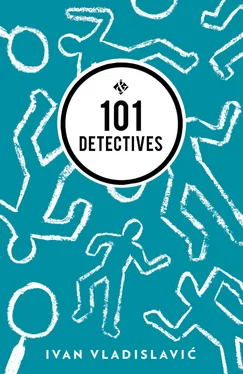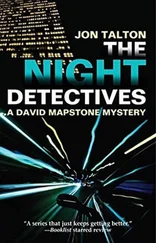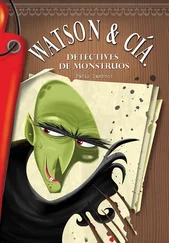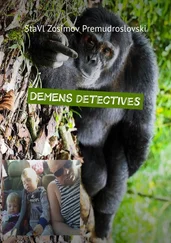Ivan Vladislavic - 101 Detectives
Здесь есть возможность читать онлайн «Ivan Vladislavic - 101 Detectives» весь текст электронной книги совершенно бесплатно (целиком полную версию без сокращений). В некоторых случаях можно слушать аудио, скачать через торрент в формате fb2 и присутствует краткое содержание. Год выпуска: 2015, Издательство: And Other Stories Publishing, Жанр: Современная проза, на английском языке. Описание произведения, (предисловие) а так же отзывы посетителей доступны на портале библиотеки ЛибКат.
- Название:101 Detectives
- Автор:
- Издательство:And Other Stories Publishing
- Жанр:
- Год:2015
- ISBN:нет данных
- Рейтинг книги:4 / 5. Голосов: 1
-
Избранное:Добавить в избранное
- Отзывы:
-
Ваша оценка:
- 80
- 1
- 2
- 3
- 4
- 5
101 Detectives: краткое содержание, описание и аннотация
Предлагаем к чтению аннотацию, описание, краткое содержание или предисловие (зависит от того, что написал сам автор книги «101 Detectives»). Если вы не нашли необходимую информацию о книге — напишите в комментариях, мы постараемся отыскать её.
and
, invites readers to do some detective work of their own. Each story can be read as a story, but many hide clues and patterns. Whether skewering extreme marketing techniques or constructing dystopian parallel universes, Vladislavic will make you look beyond appearances.
101 Detectives — читать онлайн бесплатно полную книгу (весь текст) целиком
Ниже представлен текст книги, разбитый по страницам. Система сохранения места последней прочитанной страницы, позволяет с удобством читать онлайн бесплатно книгу «101 Detectives», без необходимости каждый раз заново искать на чём Вы остановились. Поставьте закладку, и сможете в любой момент перейти на страницу, на которой закончили чтение.
Интервал:
Закладка:
Oleg was her sister’s idea. The world is full of good men, Joan always says, jerking her chin towards the nearest window, but you must be open to meeting them. He’s exactly your type.
He was new in town. She took him to a rooftop restaurant on the edge of the old business district. Climbing six gloomy flights of stairs, past floors cluttered with derelict knitting-machines, overlockers and steam presses, they emerged on a canopied island hung with ferns and orchids and paper lanterns. The furniture was spindly Scandinavian, the crockery eggshell Japanese. Oleg let her have the view: the grimy roofs and façades of factories and offices, chimneys and soot-stained windows, the overhead lines of the railway, the girders of a flyover, and here and there a rooftop café or club, bright and colourful islands like their own, where people like them were eating, drinking and flirting, elegantly suspended between heaven and earth. They ate vegan wraps and drank Chinese beer.
She did not like Oleg, but she was taken with his hat, a natty, multicoloured porkpie made of raffia. He had a fussy routine for adjusting its fit, which he performed every five minutes, raising it ever so slightly between the palms of both hands, with his sticky fingertips kept well clear of the pristine weave, then tilting the brim down over his forehead, before sliding it back onto the crown of his head and bedding it down a touch. He knew precisely where it sat best.
Oleg was a DJ. He travelled constantly, he told her, in search of new sounds. Last week he was in Sarajevo, this time next week he would be in Lubumbashi. After that maybe Bamako or Luanda or Cairo. Some of the best new sounds were in Africa. War zones did not frighten him. Some of the very best new sounds were in conflict areas. Kiev, Bristol, well not really. At the end of this itinerary, he adjusted his hat again and gazed over her shoulder into the jungly heart of the restaurant, cocking his head as if he was listening for new sounds in the foliage.
She looked in turn at the skyline over his shoulder and listened. She heard taxis hooting down below and scraps of talk and laughter carried on the breeze from the islands upwind.
What hat is he wearing now? she thought. What is he keeping under it?
He did not want to take it off, and ten minutes of teasing were needed before he let her try it on. She was sure he would be bald underneath, that the hair curling from under the brim was just a fringe, but his hair was as thick and glossy as a Labrador’s.
The bond between hat and head was not easily restored. He repeated the routine three times before he was satisfied.
Is he scared of losing his head? she thought. She had learnt to see every human action as sign, symptom or subterfuge. It was one of the unpleasant side effects of being a storyteller.
She was reminded of a poet she had read about, a famous Swiss poet who wore a hat with a mechanical cuckoo that popped out through a trapdoor when he pressed a remote control. An eye-catching visual aid to embellish the punchline of a poem. She told Oleg about it, but he was not much interested. The sounds in Berne and Zürich were very thin, he said, because of the altitude and the democracy. Whereas the sounds in Reykjavik and Sofia were intriguing, despite the lack of conflict.
Raffish, she thought as he adjusted his hat again. Could it be related to raffia?
She saw afterwards that Oleg’s manoeuvres had less to do with his hat than his hair, which had to sweep from under the brim in exactly the right devil-may-care way. The hat was an accessory for keeping his hair in place, like a hairpin or a comb, and he wielded it constantly as if someone was on the point of taking his picture. Perhaps it was an invitation.
If only she had changed her hairstyle sooner, she thought now, she and Oleg might have had more to talk about.
The storyteller fans the pages of her notebook under her nose to dispel the smell of apple pie (or whatever it’s meant to be) and looks down on the familiar scene. The prefabricated geometry of the new city subdues her eye: the taxi rank, the corrugated canopy of the petrol station, the black coil of the freeway, office parks and townhouses, the skywalk to the convention centre, the rooftop parking at the mall, the fountain in the square. It’s all strangely silent. Something so large and various should make a noise. A soft hubbub, rising up ten floors to her open window, would be reassuring. But the windows are sealed tight.
She remembers her father asleep on the sofa on a Saturday afternoon with the television playing mutely in a corner. Little men would be driving golfballs down green fairways: the balls rose in stately arcs and hung in the air so long it seemed the film had stopped. Silence took the sudden life out of things. Through the fluted legs of the coffee table she watched her father’s chest to make sure it was rising and falling, her attention all that made him breathe.
Now she scours the streets for signs of life. Everything stilled, hushed, bleached to the bone. Yet there are more people than usual in the square with their faces turned to the sky. Heliotropes, she thinks, following the sun. Perhaps they see her here at the window and envy her the panoramic view, little knowing how it makes her feel.
If your office is higher up, you have access to the roof garden. There is no rule that says a data capturer from the 5th floor or a junior manager from the 9th cannot get into the lift and go up and sit in the sun eating a low-fat yoghurt or reading a report, but the fact is that no one from the lower half of the building ever does. A variable gravitational force keeps them in their place or draws them down to the lobby or the square. This force weakens as you rise. Nearly everyone on the top four or five floors sometimes goes up to the roof, even the PAs and receptionists. The people on the top floor pop up there every day. It’s their territory.
She herself has been up to the 21st floor often, because that’s where the boardrooms are, but she’s never felt free to enjoy the view. Only once did she have time to imagine what it might be like to work there. Simonetta, the receptionist on floor 17, let Liselotte on floor 11 know that there was an unoccupied office in the Research & Information Department and so she went up in her lunch hour to take a look. It was a corner office with a clear view over all the surrounding blocks and it lifted her heart. The old city shimmered on the horizon like a mirage.
Her stories had improved by then. Though her performances were never as colourful as those of the corporate poet, they were steady and useful. At the Wellness Weekend workshop, she’d told the tale of Hiroto Yoshida, the marathon-running monk, and got more than the usual applause. Human Capital & Technology had even posted it on the intranet. She’d earned the right to make a small demand, she thought, and so she put in an application for a higher office.
She could not emphasise how much she loved the view. It would look as if she spent her time daydreaming, and even though that was part of her job description, strictly speaking, it did not seem wise to say so directly. She argued instead, persuasively she thought, for vision and perspective. Her current quarters were stuffy and constrained: she needed light and air and a more expansive view. She had to see the big picture. It was essential to her work.
Another ping. As she skirts the big white desk a savoury aroma wafts into her nostrils. Chicken soup? That’s new. She sniffs all around the device. It’s never given off such an intense fragrance. She’s not sure exactly where it comes from, but she thinks it’s a gland inside the hood.
She presses her palm to the shell. Hotter than usual too. Sometimes when it’s hot to the touch it’s cool inside. There’s no telling. Especially when it radiates heat like this, it reminds her of an old-fashioned drier in a hairdressing salon.
Читать дальшеИнтервал:
Закладка:
Похожие книги на «101 Detectives»
Представляем Вашему вниманию похожие книги на «101 Detectives» списком для выбора. Мы отобрали схожую по названию и смыслу литературу в надежде предоставить читателям больше вариантов отыскать новые, интересные, ещё непрочитанные произведения.
Обсуждение, отзывы о книге «101 Detectives» и просто собственные мнения читателей. Оставьте ваши комментарии, напишите, что Вы думаете о произведении, его смысле или главных героях. Укажите что конкретно понравилось, а что нет, и почему Вы так считаете.












